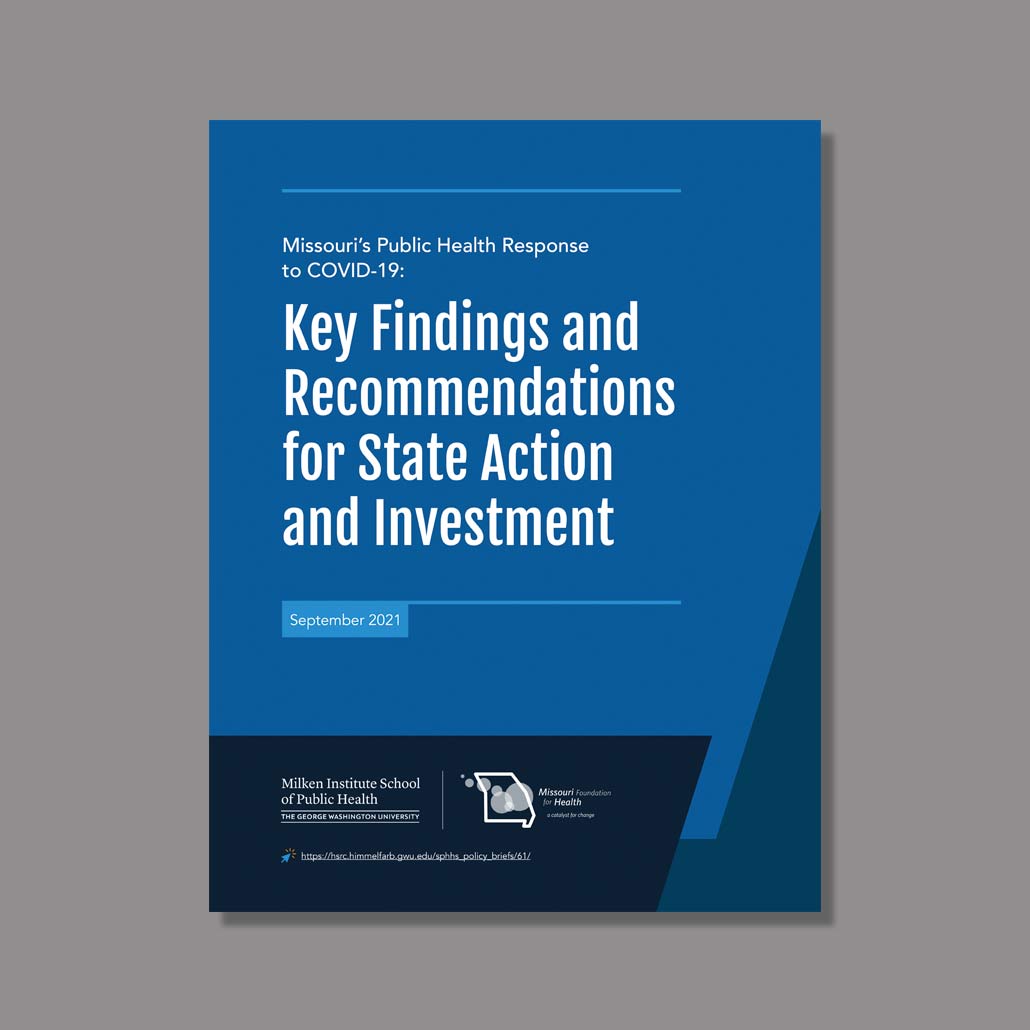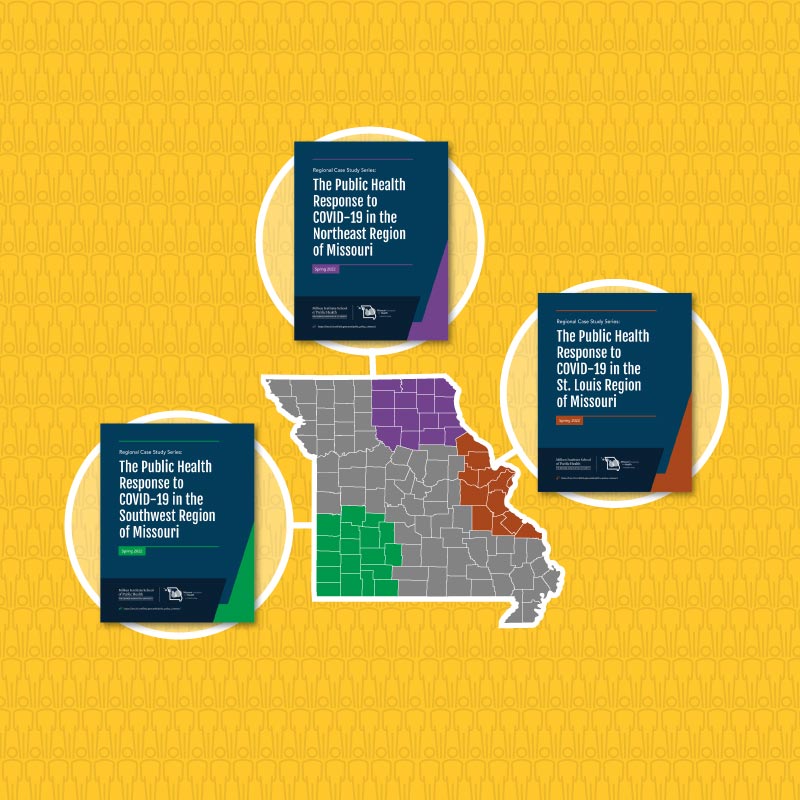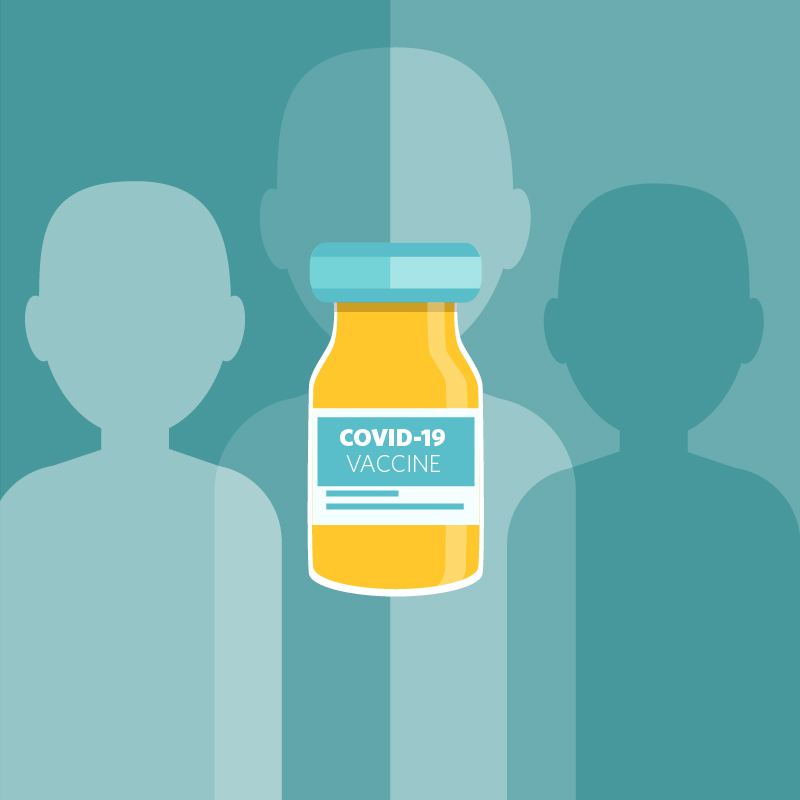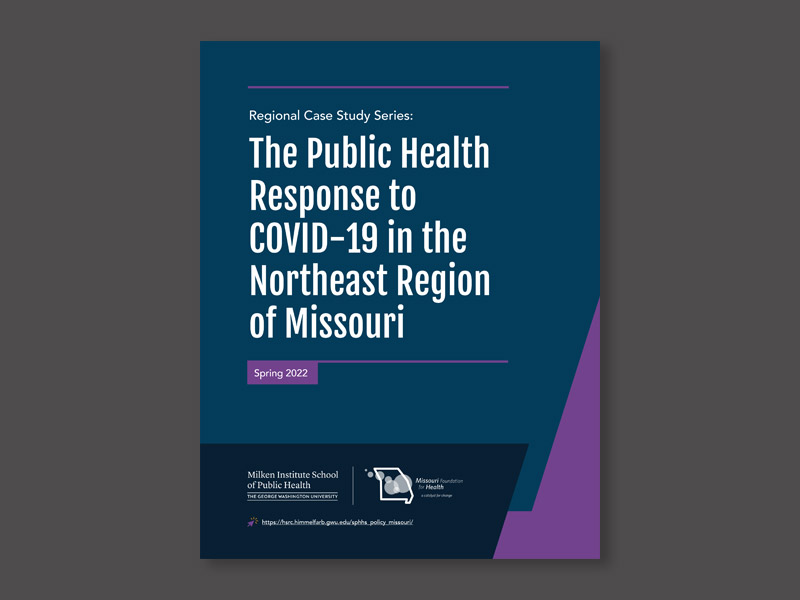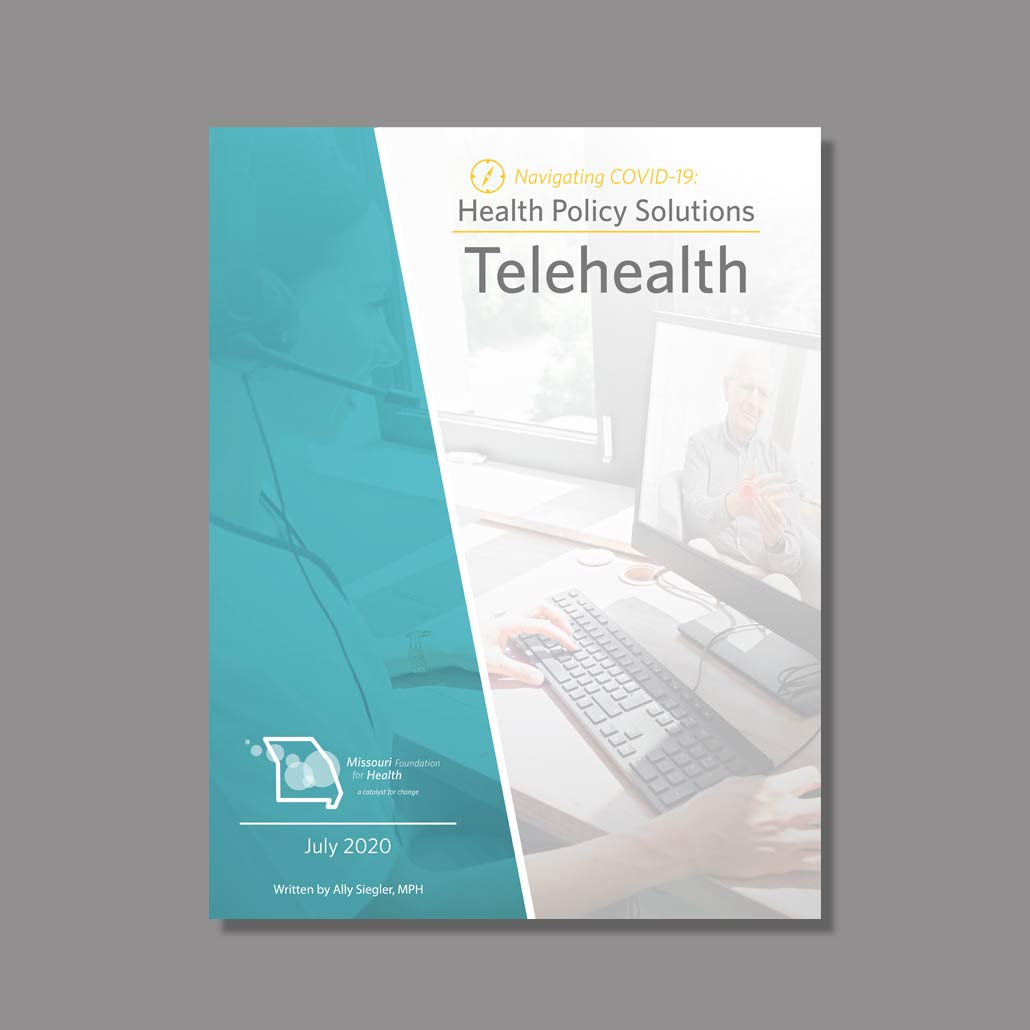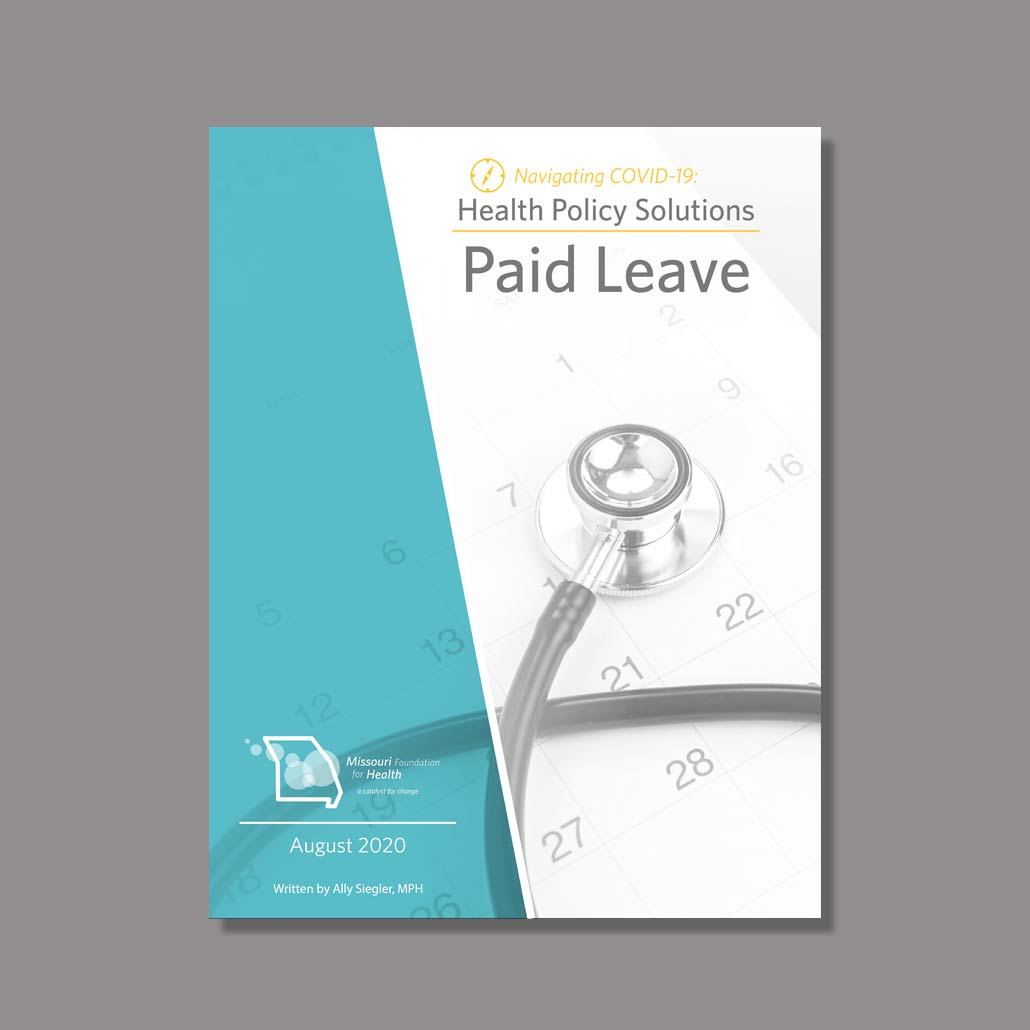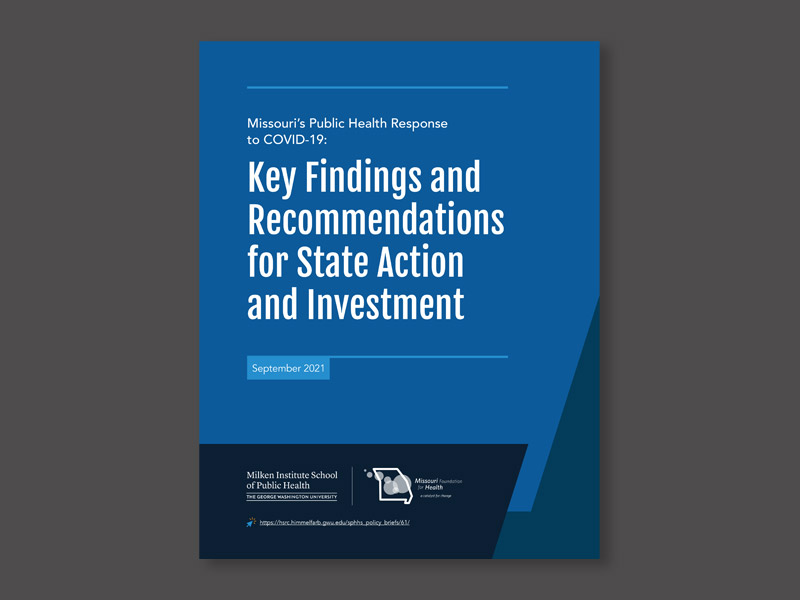Search results for: “covid”
-
Missouri’s Public Health Response to COVID-19: Key Findings and Recommendations for State Action and Investment
This report from the study, Strengthening Missouri’s Capacity to Respond to Public Health Crises, summarizes key findings that are relevant to strengthening the state’s and local public health agencies’ (LPHAs) capacity to respond to future public health crises. With funding from Missouri Foundation for Health, a George Washington University study team conducted 138 stakeholder interviews…
-
New Research Shows a Disjointed Regional Public Health Response to COVID-19 – Lessons Learned Two Years Into the Pandemic
Taking stock after two full years of COVID-19 can feel overwhelming. How do we measure it – in deaths, illnesses, shelter-in-place orders, scientific breakthroughs, in life milestones that we’ve missed? And even now, as we (hopefully) see a light at the end of the tunnel, how do we make sure we’re better prepared for similar…
-
Combating Food Insecurity During the COVID-19 Pandemic
Food security exists when people have access to enough food for an active, healthy life at all times. Estimates in 2018 showed that about 865,000 people in Missouri, or 14% of the state population, were struggling with food insecurity – and about a fourth of them were children. Although food insecurity has declined over the…
-
My Take on the COVID-19 Vaccine: Choice, Lived Experience, and Trust
In 2021 all Missourians are participating, one way or another, in a life-and-death undertaking to bring the pandemic under control by reaching herd immunity as soon as possible. How quickly we reach that goal depends on how well public agencies, nonprofit health care organizations, and private entities can come together to effectively distribute and administer…
-
Missouri’s Public Health Response to COVID-19: St. Louis Region
The Public Health Response to COVID-19 in the St. Louis Region of Missouri is one of three regional reports that offers findings from conversations with local stakeholders and residents about their experience with the state and region’s pandemic response.
-
Missouri’s Public Health Response to COVID-19: Northeast Missouri
The Public Health Response to COVID-19 in the Northeast Region of Missouri is one of three regional reports that offers findings from conversations with local stakeholders and residents about their experience with the state and regional pandemic response.
-
Missouri’s Public Health Response to COVID-19: Southwest Missouri
The Public Health Response to COVID-19 in the Southwest Region of Missouri is one of three regional reports that offers findings from conversations with local stakeholders and residents about their experience with the state and region’s pandemic response.
-
Navigating COVID-19: Health Policy Solutions – Telehealth
In early 2020, the COVID-19 crisis disrupted the health care system, with federal and state governments quickly altering health care delivery and payment to adapt to patient and provider needs. Telehealth has been a prevalent alternative to in-person care during the pandemic. To support the growing use of telehealth, the federal government and the state…
-
COVID-19 Foundation Update
Like many organizations and companies around the world, Missouri Foundation for Health has been monitoring COVID-19, paying close attention to its impact on our work, staff, and organizational activities. In thinking about what’s best for the Foundation, our people, and our partners and grantees, we’ve decided to alter a few operational things until further notice.…
-
Missouri’s Public Health Response to COVID-19: Key Findings and Recommendations for State Action and Investment
This report from the study, Strengthening Missouri’s Capacity to Respond to Public Health Crises, summarizes key findings that are relevant to strengthening the state’s and local public health agencies’ capacity to respond to future public health crises.


